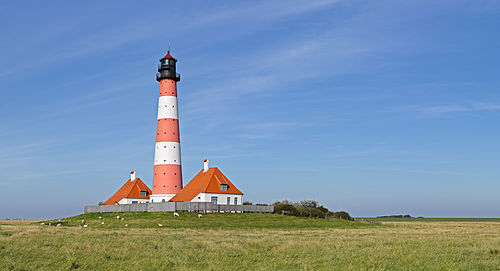Difference between revisions of "Lesson:Essentials/31"
| Line 119: | Line 119: | ||
=Review= | =Review= | ||
| − | |||
| − | |||
6. {{describepicture}} | 6. {{describepicture}} | ||
Revision as of 08:30, 8 November 2013
Grammar
The Simple Past Tense
Hoje vamos começar a aprender o Simple Past Tense. Por hora, vamos apenas pensar que estas frases todas estarão no passado e aprender primeiro a forma correta; mais adiante explicaremos em mais detalhe quando usar este tempo verbal.
Affirmative Sentences
Para frases afirmativas, temos dois tipos de verbos: regulares e irregulares. Quando temos um verbo regular, colocamos a frase no passado acrescentando -ed. No caso dos verbos irregulares, teremos que memorizar uma lista.
- Ex.: She walks home everyday. -> She walked home yesterday.
- She usually eats a toast for breakfast. -> She ate a toast for breakfast this morning.
Negative Sentences
Quando fazemos frases negativas no Simple Past precisamos usar o verbo auxiliar did, tanto para verbos regulares quanto irregulares. Para que a frase fique negativa, o verbo auxiliar vem seguido de not, então temos:
- Ex.: She did not walk home yesterday.
- She did not eat toast for breakfast this morning.
Atenção! Note que não usamos o -ed nem modificamos o verbo. Para frases negativas, usamos o que é chamado de base form. Quando apresentarmos a tabela de verbos irregulares isto ficará mais claro.
Abreviação: did + not = didn't
- Ex.: She didn't walk home yesterday.
- She didn't eat toast for breakfast this morning.
Interrogative Sentences
O verbo auxiliar did também é utilizado para frases interrogativas, mas ele vem antes do sujeito.
- Ex.: Did she walk home yesterday?
- Did she eat toast for breakfast yesterday?
EXERCISES
1. Escolha a alternativa correta:
- a. I (listened, listen) to the weather forecast 5 minutes ago.
- b. She (waters, watered) the flowers very early this morning.
- c. He (shout, shouted) at me in the middle of the street.
- d. They (cleaned, clean) their room yesterday.
- e. We (watched, watches) TV before going to sleep.
- f. Sally (washes, washed) the dishes last night.
- g. Mrs. Pointers (painted, paints) her house last year.
- h. The Roberts (visited, visits) us last month.
- i. She (plays, played) tennis when she was young.
- j. Tom (return, returned) home without money.
- k. Sally and I (walk, walked) home last night.
- l. Those boys (polished, polish) my car an hour ago.
- m. It (rains, rained) a lot last week.
2. Coloque os verbos no passado nas frases abaixo:
- a. Glenda _______________ (talk) to me an hour ago.
- b. We _______________ (walk) to school yesterday.
- c. I _________________ (enter) this group in January.
- d. Those students ____________ (work) hard last year.
- e. He _______________ (wait) a long time to see you.
- f. My parents ________ (invest) all their money in the stock market.
- g. Your friend ___________ (deliver) your books last night.
- h. The old man ___________ (ask) us to leave the room.
- i. The little dog ____________ (follow) her for two hours.
- j. Levi Strauss ___________ (invent) the blue jeans.
Pronunciation
| Examples | |
|---|---|
| face | day |
| ate | break |
| faced | great |
| mate | lace |
| case | late |
Vocabulary
The Utility Room
- Washing machine
- Bleach
- Detergent
- Dirty clothes hamper
- Dirty clothes
- Dryer
- Hanger
- Ironing board
- Iron
- Scrub brush
- Clothes pin
- Clothes line
- Trash can
- Garbage, trash
- Trash bag
- Vacuum cleaner
- Broom
- Spray bottle
- Dustpan
- Mop
- Bucket
http://www.languageguide.org/english/vocabulary/utility-room/
Review
6. Describe the following picture.help
Conversation
<headertabs />
{{#widget:DISQUS
|id=jointhegrove
|uniqid=Essentials/31
|url=http://thegrove.com.br/metodo/index.php/Essentials/31
}}
